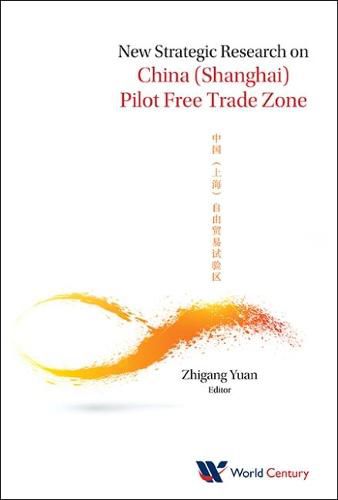Readings Newsletter
Become a Readings Member to make your shopping experience even easier.
Sign in or sign up for free!
You’re not far away from qualifying for FREE standard shipping within Australia
You’ve qualified for FREE standard shipping within Australia
The cart is loading…






This book provides a detailed study of practices of China (Shanghai) Pilot Free Trade Zone (Shanghai FTZ henceforth). It aims to answer questions related to establishing the Shanghai FTZ and improving its practices, such as the future of world’s macro-economy, the Shanghai FTZ’s position in Chinese and world economy, government transition and international trade upgrading, as well as financial sector opening up strategies and innovations. By answering these questions, implications for possible future policy developments are provided. Though the operation of Shanghai FTZ is the main focus, this book delves deeper into the question of how China will further reform its financial system in the future. Similar to the Shenzhen Special Economic Zone, which heralded China’s economic transformation in the 1980s and 1990s, the Shanghai FTZ may well be such a pioneer project, pointing to the future economic path that China might tread. Written by the foremost Chinese economists - with some involved in the setup process of the Shanghai FTZ, this book is a must read for anyone who is interested in the prospects of the Shanghai FTZ and the future direction of the Chinese economic development.
$9.00 standard shipping within Australia
FREE standard shipping within Australia for orders over $100.00
Express & International shipping calculated at checkout
This book provides a detailed study of practices of China (Shanghai) Pilot Free Trade Zone (Shanghai FTZ henceforth). It aims to answer questions related to establishing the Shanghai FTZ and improving its practices, such as the future of world’s macro-economy, the Shanghai FTZ’s position in Chinese and world economy, government transition and international trade upgrading, as well as financial sector opening up strategies and innovations. By answering these questions, implications for possible future policy developments are provided. Though the operation of Shanghai FTZ is the main focus, this book delves deeper into the question of how China will further reform its financial system in the future. Similar to the Shenzhen Special Economic Zone, which heralded China’s economic transformation in the 1980s and 1990s, the Shanghai FTZ may well be such a pioneer project, pointing to the future economic path that China might tread. Written by the foremost Chinese economists - with some involved in the setup process of the Shanghai FTZ, this book is a must read for anyone who is interested in the prospects of the Shanghai FTZ and the future direction of the Chinese economic development.